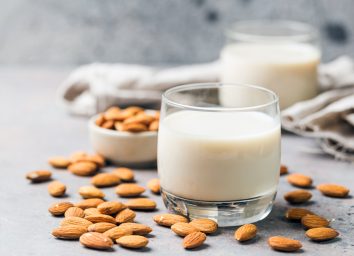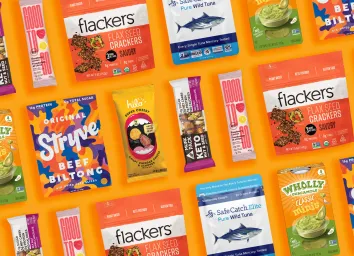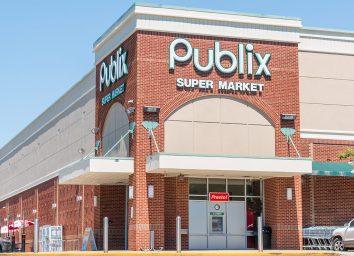15 Things You Shouldn’t Do When Buying Produce
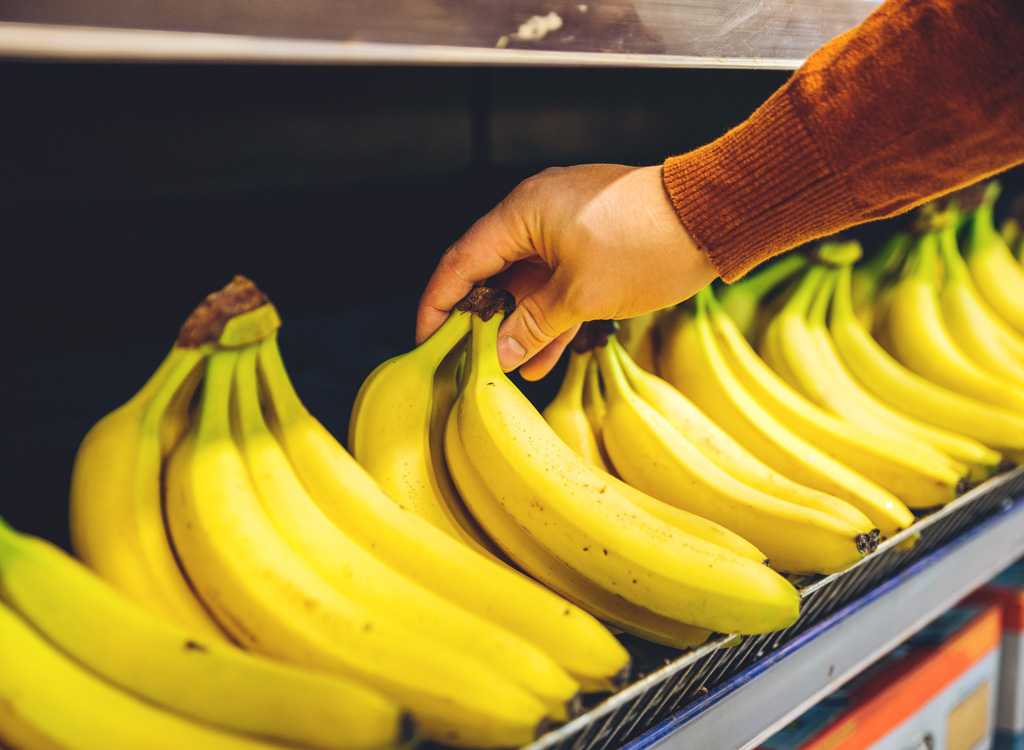
Considering only nine percent of Americans hit their five-a-day vegetable quota according to the Centers for Disease Control, no produce is bad produce. Still, some savvy shopping and storage strategies can save you precious dollars, make your purchases last longer, and help you steer clear of bad bacteria so you’ll be more likely to join the fruit- and veggie-rocking ranks.
Follow these 15 expert-endorsed tips to shop smarter the next time you’re stocking up on strawberries, squash or spinach. And for more budget-friendly tips and advice on how to avoid foodborne illness, subscribe to the Eat This, Not That! magazine. For a limited time, you’ll get 50 percent off the cover price!
Don’t Go Off-season
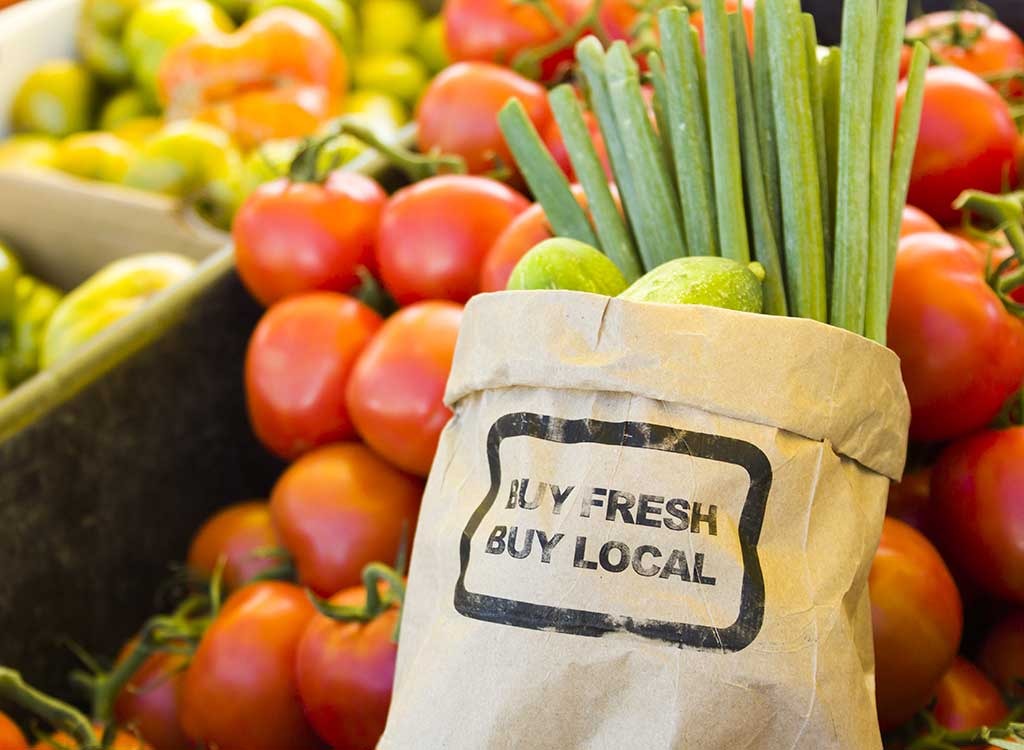
One of the easiest ways to stick to your food budget no matter where you shop: “Always attempt to buy in-season produce,” says Caroline Weeks, RD, a clinical registered dietitian in Des Moines, IA. Visit ripetrack.com to see what’s fresh right this moment and plan your purchases accordingly.
“Not only will the blueberries flown in from Kenya cost you about $5 during winter, but the carbon footprint is also much higher. Plus, because the food has been in long-distance transit and has been off the tree or vine for quite some time, its nutrient value can drop,” explains Adrienne Raimo, RD, a holistic health and wellness coach at One Bite Wellness in Columbus, Ohio.
Don’t Think Fresh Is Always Best
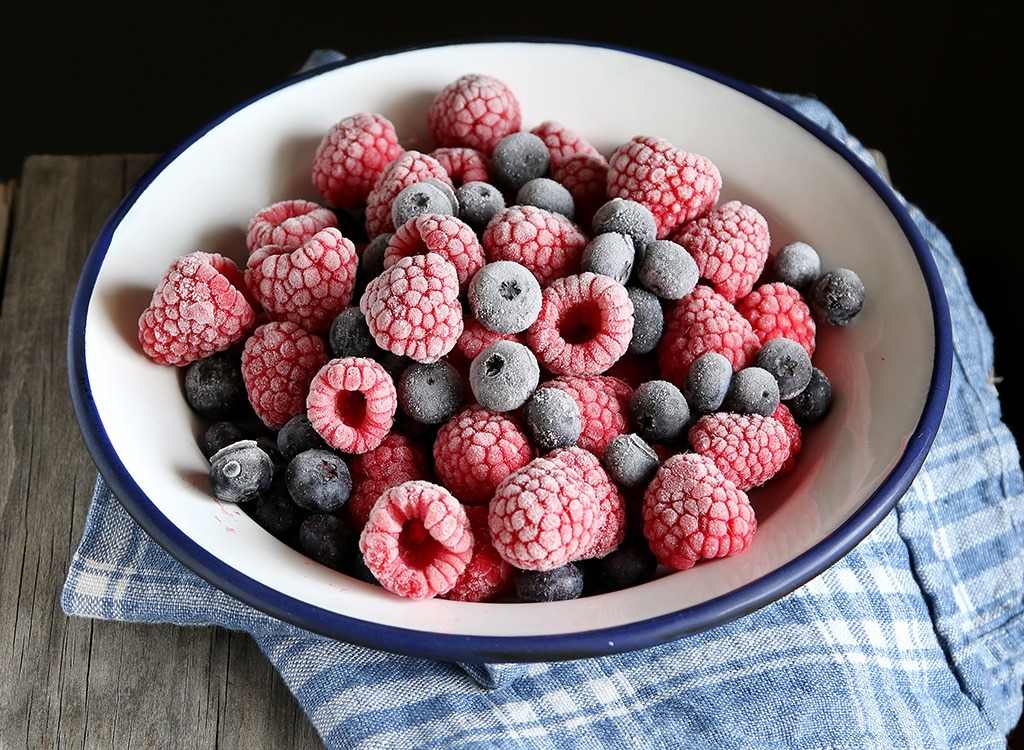
Get icy like Jessica Cording, RD, a dietitian, health coach, and author in New York City.
“Try frozen fruit. The fruits are flash-frozen at peak freshness so you’re getting all the same nutrients as fresh—just without having to worry about spoilage before you have time to finish them,” she says. “Frozen fruit can be way more affordable, especially for varieties that tend to naturally cost more, such as cherries.” Pre-cut frozen fruit can be a lifesaver for all the smoothie stars out there. “Frozen pineapple and mangoes, for example, can add natural sweetness and a rich, milkshake-like texture to shakes and smoothies. This will cut down on prep (since there’s no need to slice it yourself) and potential waste at the same time.”
Don’t Forget About the Farmers’ Market
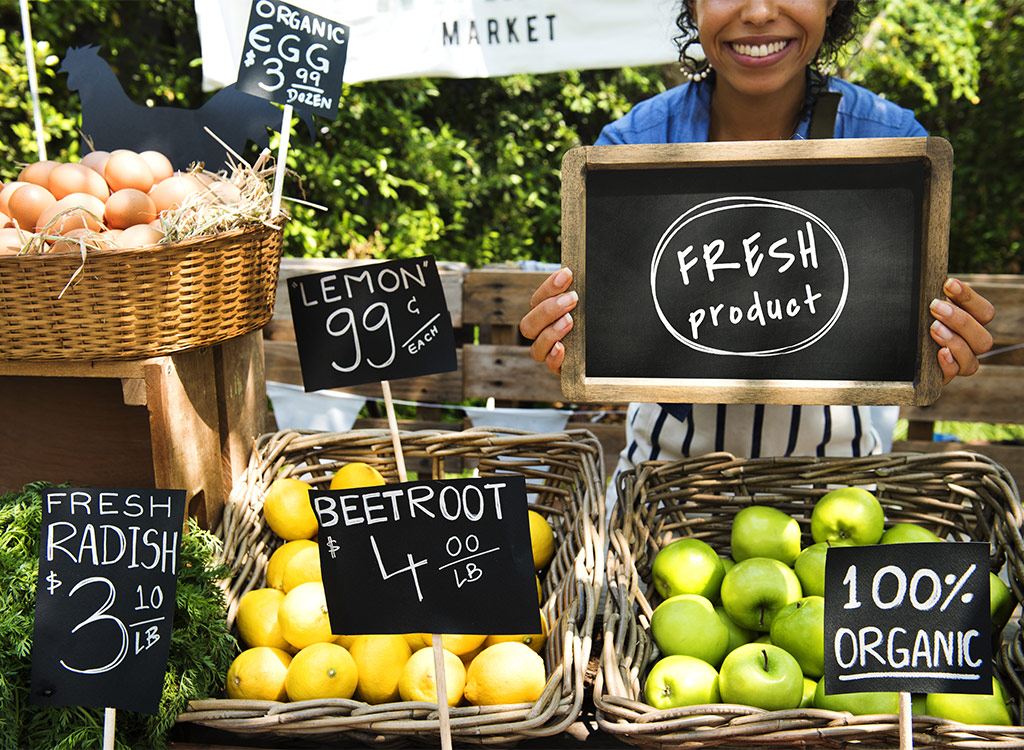
The supermarket produce section is certainly worthy of a visit, but the farmers’ market makes for a more social—and often more financially-savvy—stop. SNAP (Supplemental Nutrition Assistance Program) vouchers are accepted at most farmers’ markets to make fresh ingredients accessible to even more people, Weeks says.
“I love going to farmers’ markets for many reasons. It’s amazing to see the passion of the growers and make a connection. It’s also nice to know I’m getting something more local and supporting neighbors,” says Bonnie Taub-Dix, RD, creator of BetterThanDieting.com and author of Read It Before You Eat It: Taking You From Label to Table.
Plus, you can almost guarantee your farmers’ market purchases have been harvested more recently than what you’ll find at a conventional grocery store. By treating apples with a gas—1-methylcyclopropene (1-MCP)—that slows ripening, food distributors can extend the life of the fruit by three to six months. Great news for food waste; not so good news for your cells. Similar to that world-traveler produce, these mature fruits and veggies lose nutrition by the day.
Don’t Immediately Toss What’s Past Prime

Make the most of overripe fruit in quick bread recipes (banana muffins, anyone?) and crumble fillings (apple-streusel for the win!). Or if you didn’t make it through all the summer squash you hoped to spiralize, grate it into zucchini bread batter or mix with ground meat to add moisture, fiber, and vitamins to your burgers or meatballs.
Don’t Buy (Far) Ahead
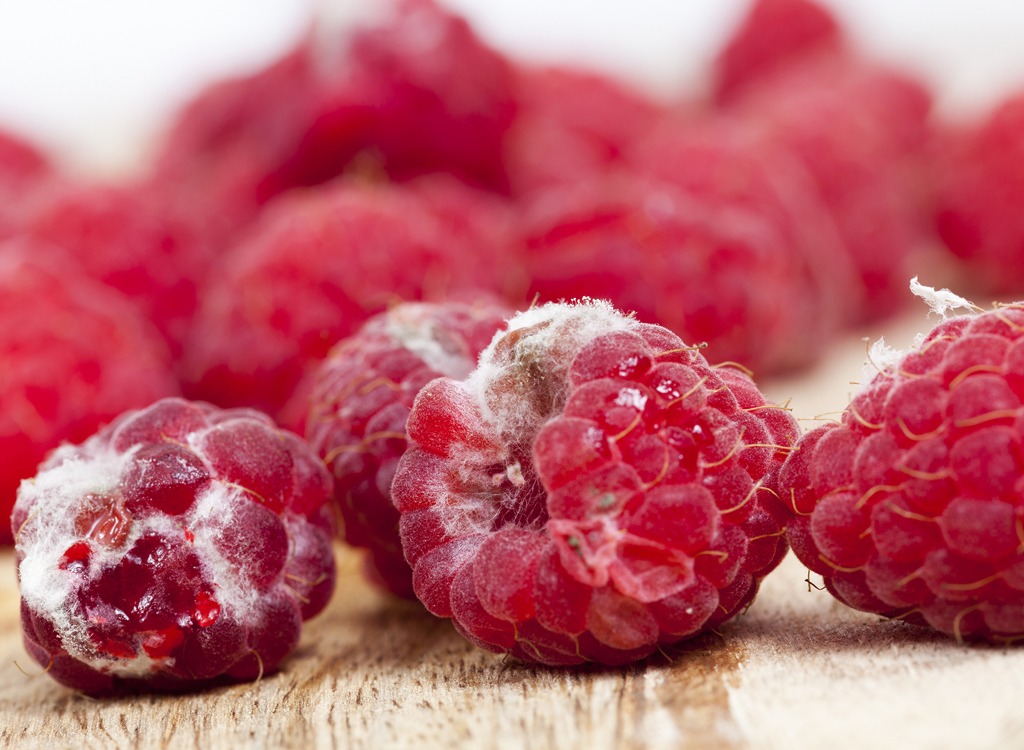
Planning ahead is clutch when it comes to saving money and meal prep, but keep in mind that you can prep things only a few days at a time for the freshest, best fruit and veg. “Unlike cereals and other dried goods, produce can’t be expected to be fresh more than a week or so from its purchase date. Consider going to the grocery store or farmers’ market a couple times per week to refresh your stash,” Raimo says.
Finish up your previous haul immediately before refilling your crisper drawers to stock up wisely. A Cornell University study found that people who eat a healthy snack before grocery shopping stock up on more fruits and veggies than those who don’t. In the study, shoppers who ate an apple before roaming the aisles ended up purchasing 25 percent more produce than those who shopped on an empty stomach.
Don’t Always Grab What’s in Front
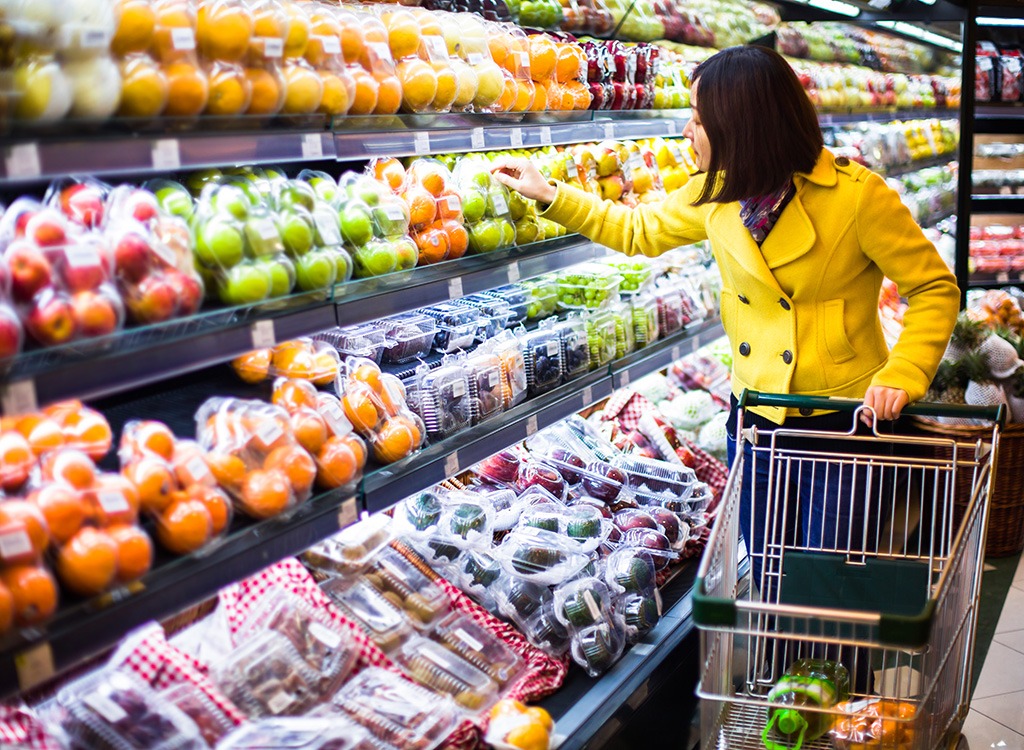
Wondering what all that shuffling is about when a new box of peaches is getting set out at the grocery store? Supermarket staff is often taught to rotate stock so the older produce works its way forward while newer items are situated behind. For the least-fussed-with and most nutritious finds, carefully reach to the back of the pack.
Don’t Neglect the Game Plan
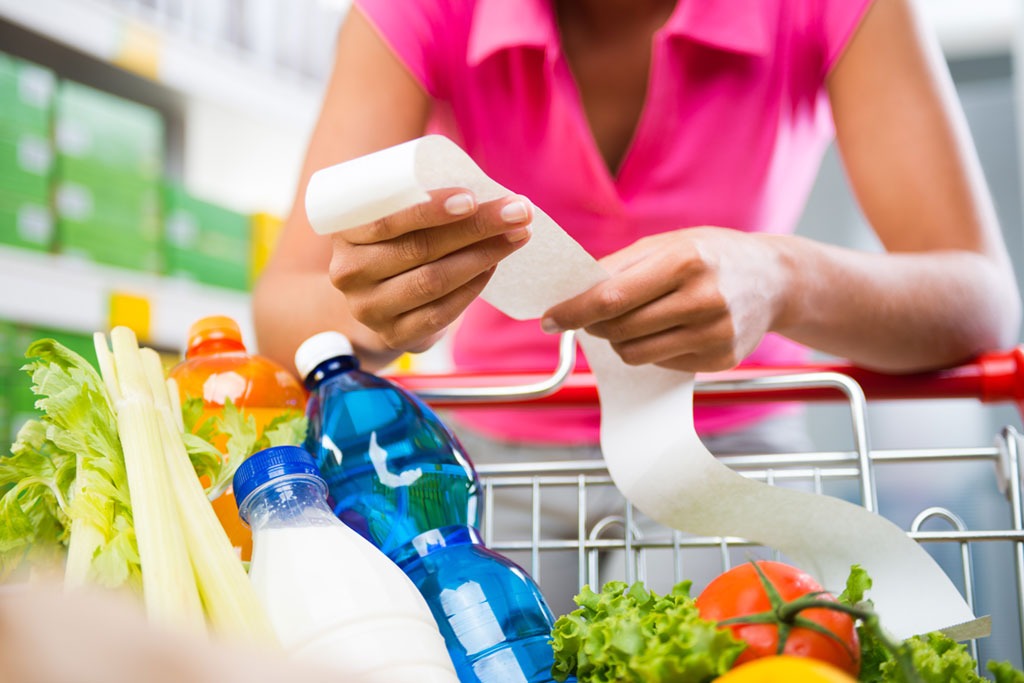
Make a list and check it twice. “Design an eating agenda for the week and front-load breakfasts, lunches, and dinners that use up items that tend to wilt and go rotten first. Dig into the delicate spring mix and berries before hardier produce such as potatoes and collards,” Raimo says.
Don’t Purchase Pre-cut by Default
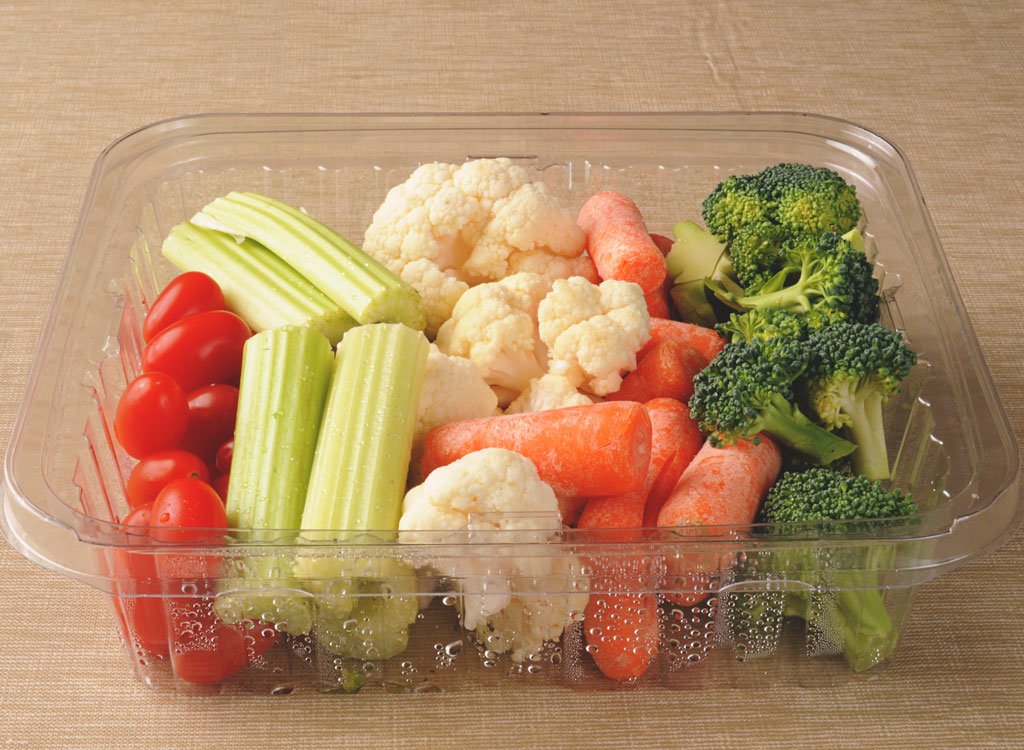
“Buying pre-sliced produce, including crudites or melon, will often cost you 100 percent more than buying the whole fruit or vegetable and taking a few minutes to do it yourself,” Raimo says. “Plus, the skin or rind of the plant helps prevent it from deteriorating, thereby keeping nutrients longer and preventing a ‘science experiment’ in the back of the fridge.”
But you must account for your calendar, Cording counters.”If feeling short on time is a barrier to your eating well, then purchasing pre-cut frozen or fresh produce can be a great way to make it easier to stay on track with healthy habits.”
Don’t Get Overzealous About How Adventurous You Are
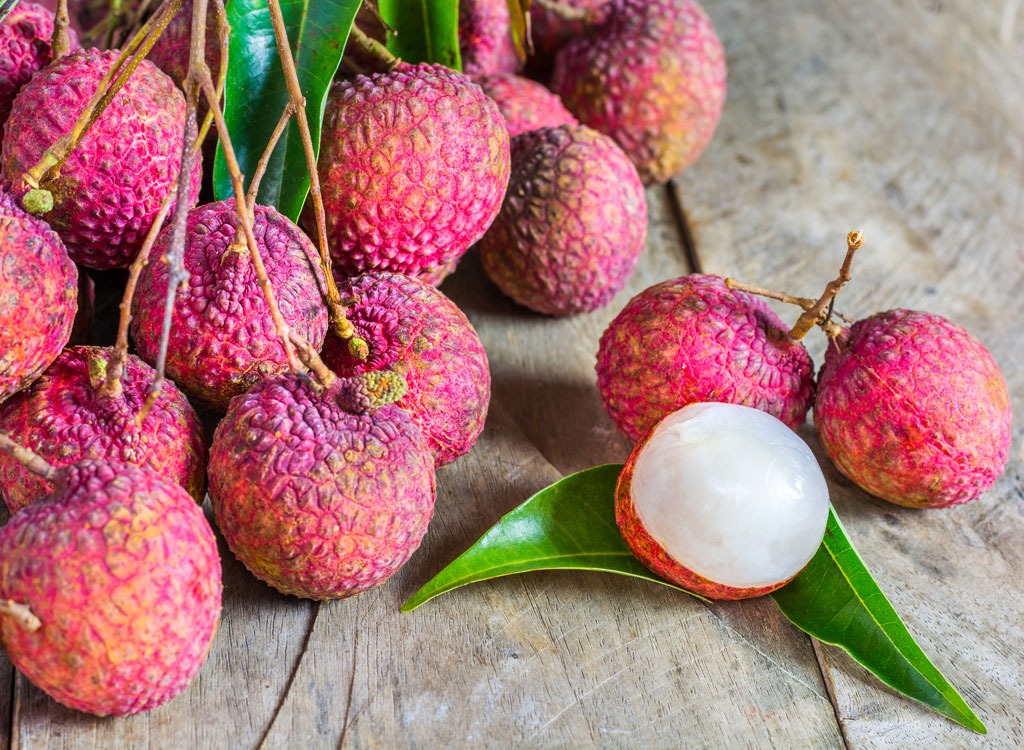
Take a gut check before you check out. Will you really use that Instagram-friendly horned melon or lychee, or will it get wrinkly and turn south before you have time to make the most of it?
“Be realistic. If you just read a book or listened to a podcast about a trendy food item and pick up a bunch of foods you’ve never heard of before—much less prepared—chances are that the food will go bad and you’ll feel guilty about the waste,” Raimo says. Feeling adventurous? Choose one or two new foods each trip, but before you do, pinpoint a recipe for each on Pinterest so you have a concrete chow down strategy.
Don’t Feel Like You Need to Always Go Organic
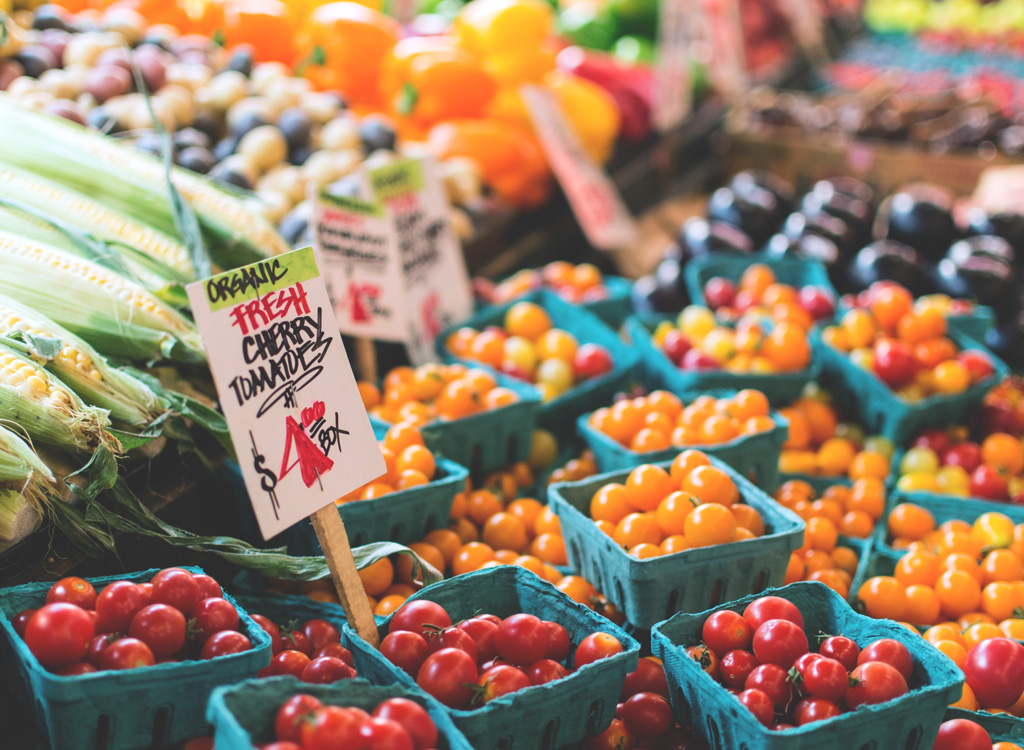
Step one: Study the Environmental Working Group’s Dirty Dozen (generally products with a thin skin).
Step two: Read up on the Clean 15.
Step three: Memorize this produce sticker coding trick: Four-digit codes signify traditionally-grown while five-digit ones hint at organic practices.
Seek out five-digit (organic) fruits and vegetables for the dirty 12, and buy conventionally grown produce for the rest to save dollars. “If something has a thick peel that you’re not going to eat, such as mango or banana, no need to go organic. If you’re going to eat the skin or the produce has lots of little crevices, I recommend purchasing organic and washing well before taking a bite or slicing through the rind or skin,” Cording says.
Taub-Dix thinks the organic versus conventional produce debate is a philosophical and environmental choice rather than a nutrition-related one. “Conventional produce is far better than no produce if your choices are limited. Numerous studies have proven that organic produce is no more nutritionally superior than conventional,” she says.
Don’t Stick With the Wimpy Stuff
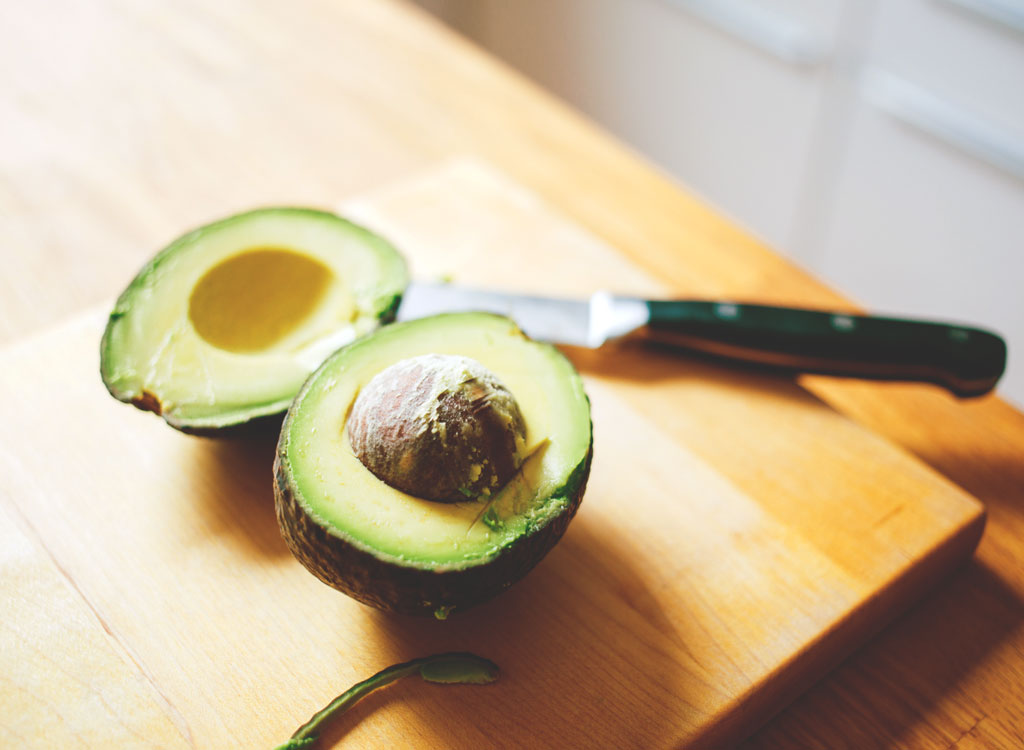
Delicate produce such as perfectly-ripe avocados and peaches practically demand a pillow to keep them safe on the trip home. Not to mention how quickly you’re required to use them after they make that tricky trek back to your kitchen!
Our RDs recommend these sturdy selections that tend to last longer—and better—if you’re unsure how soon you’ll snack or can’t trust the bagger (or yourself) to be dainty.
● Bananas
● Citrus (orange, grapefruit, tangerine, yuzu)
● Sturdy leafy greens (kale, chard)
● Brussels sprouts
● Sweet Potatoes
● Potatoes
“Eat the rainbow and don’t forget that there are lots of nutrients in white fruits and veggies, too. Potatoes sometimes get thrown shade, but they have loads of vitamin C and B6 in addition to potassium,” Taub-Dix says.
Don’t Wash ASAP
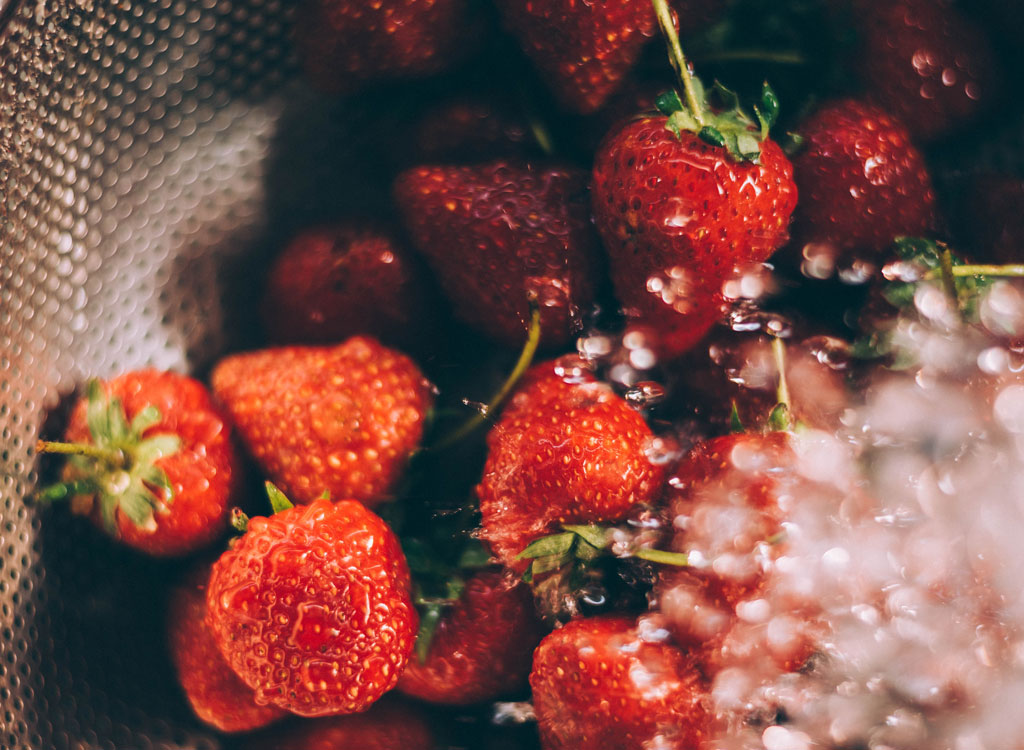
Give every last piece of produce a thorough shower (running water will do just fine, the FDA says) before you chop and chew. That includes even if you plan to peel, as slicing through the skin can transfer bacteria to the edible portion.
“To preserve freshness and extend the lifespan of fruits and vegetables, wait to wash until right before you’re planning to eat them,” Weeks says.
Don’t Get Distracted by the Looks
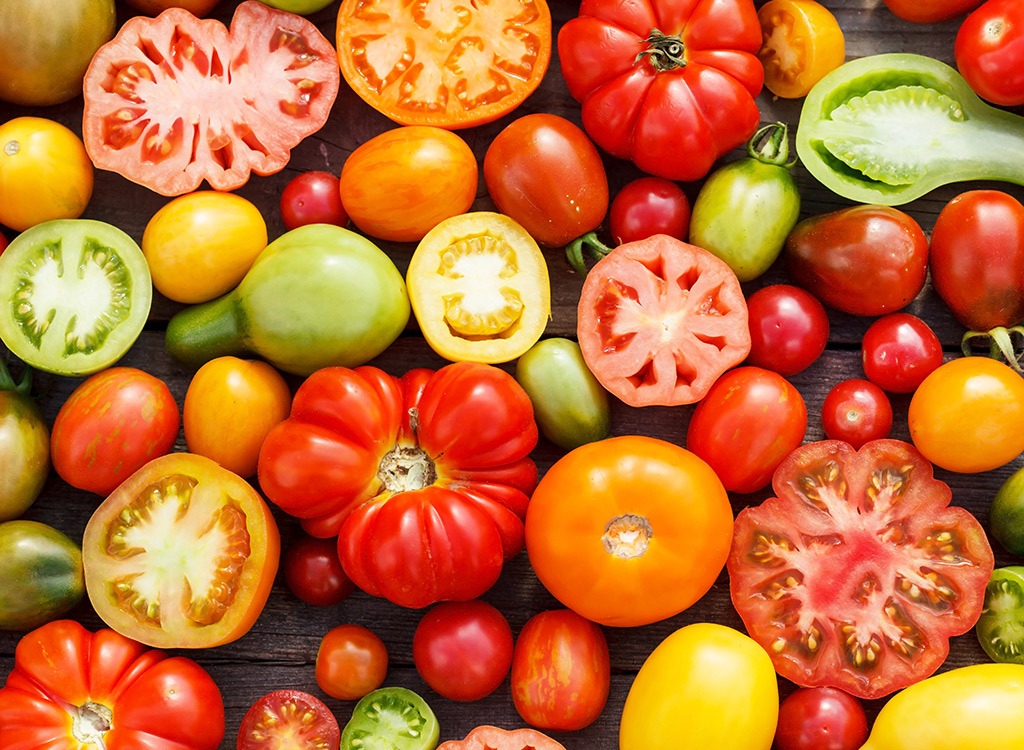
“Ugly” produce can be just as healthy as the supremely symmetrical kind. Just consider the amazing flavor and nutrition of those globular, multi-colored heirloom tomatoes that make a splash at farmers’ markets each summer!
Go by feel: The fruit or vegetable should seem heavy for its size, hinting at the water content, and the skin or peel should be nice and tight rather than wrinkly.
Don’t Store These Foods Together
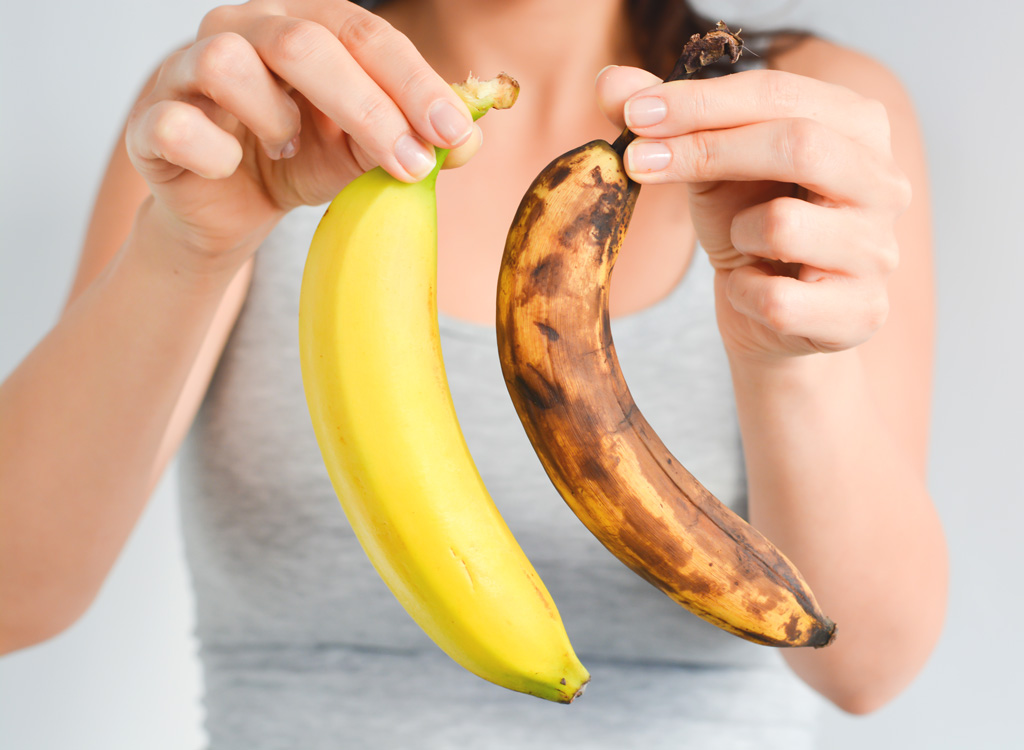
Ethylene, a plant hormone that’s emitted in a gaseous state once certain fruits are ripe can speed up the spoilage rate of some sensitive veggies. Keep apples and asparagus at arm’s’ length in your fridge, and take note of these fruit and vegetable frenemies from the Produce for Better Health Foundation.
Don’t Always Shop on Weekends

Most deliveries arrive early in the week, say, Monday or Tuesday, and most produce department discounts hit on Wednesday or Thursday. Combine those facts with the increase in shopper foot traffic on Saturday and Sunday, and you have a recipe for a low-satisfaction, high-stress excursion. If your schedule allows, hit the supermarket mid-week, then the farmers’ market on Saturday.

